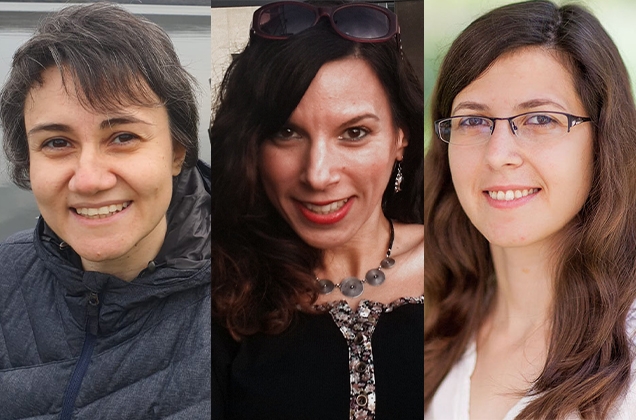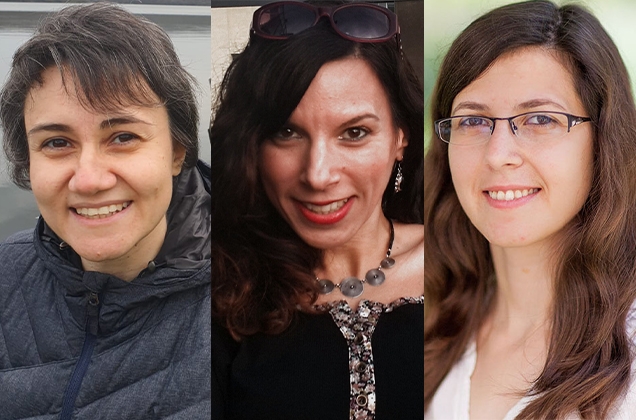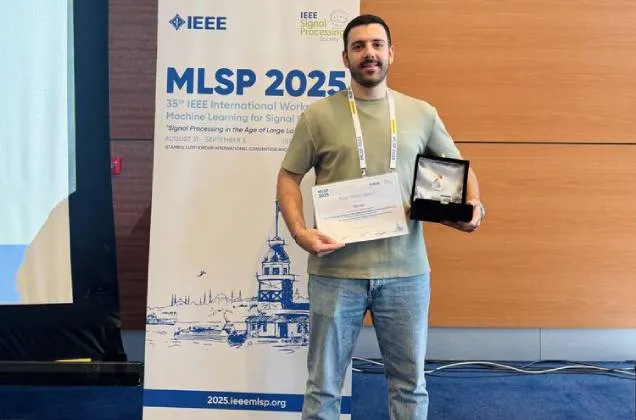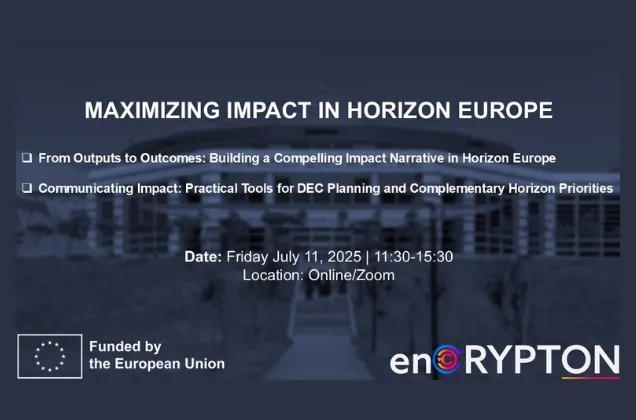19/06/2021
Sabancı University is one of the two institutions in Turkey receiving the greatest amount of support.
Three projects from Sabancı University, namely the project of Aslı İkizoğlu Erensü, member of Faculty of Arts and Social Sciences (FASS), the project of Deniz Gündoğan İbrişim from Sabancı University Gender and Women’s Studies Center of Excellence (SU GENDER), and the project of Nur Mustafaoğlu Varol, member of Faculty of Engineering and Natural Sciences (FENS) were found deserving of support in the framework of the call program “EU H2020 Marie Skłodowska Curie Action Individual Fellowships (MSCA-IF) 2020”.

The latest MSCA IF call 2020 under H2020 received 11,573 applications, a record so far, and 14 of 117 applications from Turkey were found eligible for support. With three projects, Sabancı University became one of the two institutions in Turkey receiving the greatest amount of support. The total budget of the three projects to benefit from support is 472,065 Euros.
The EU H2020 Marie Skłodowska Curie International Scholarship and Research Grants (MSCA-Individual Fellowships) program aims to strengthen human potential in the fields of research and technology from qualitative and quantitative perspectives, support the career development of researchers, encourage researchers’ mobility between countries and sectors, and thus make Europe and Turkey centers of attraction for researchers.
Aslı İkizoğlu Erensü, member of FASS, said the following about “Learning the Language of Belonging: Obstacles to Inclusion for Education of Refugees”: “Public education opens up space for children in the future of a society. Therefore, the UN High Commissioner for Refugees (UNHCR) encourages inclusion of refugee children in their first country of refuge in national education systems. However, daily school experience of refugee children shows that education is a field of continuous challenge rather than being a magical gateway to social inclusion. In its broadest sense, this project aims to contribute to the literature that studies the processes preventing social inclusion in public education.
“Education policies for refugee children in Turkey were transformed in compliance with the UNHCR strategy on the influx of refugees from Syria. According to the data of the Ministry of National Education for 2019-2020, some 63% of school age Syrian children were included in national education. One of the biggest deficiencies found in this process was insufficient local language support to students. In the face of this, a new practice called ‘integration classes’ was started in the education year 2019-2020. Accordingly, refugees who need to develop their Turkish language skills will be admitted to special classes where they will learn only Turkish language before they join their academic classes corresponding to their age.
“In the framework of MSCA-IF, I will research how the integration classes impact the socialization of refugee children, and of their caretakers. In the first year of my research, I will make observations in one integration class selected from each of the primary, secondary and high-school levels, and interview teachers and students. Furthermore, I hope to cooperate with Sabancı University Civic Involvement Projects to realize a Conversation Club in these classes in order to enable a partnership between the university and refugee communities. In the second year of my research, I plan to carry out participatory action research with caretakers of refugee children. The aim of this action research is to understand the expectations of caretakers from education and their ways of coping with problems, in addition to mediating so that they may participate in public education as legitimate stakeholders.”
According to the information provided by Deniz Gündoğan İbrişim from Sabancı University Gender and Women’s Studies Center of Excellence (SU GENDER), the project “From the Anthropocene to Post-Imperial Memory, Gender and Trauma: New Approaches in Turkey” studies the Anthropocene both as an age and an analytical category, and how it is represented in post-Ottoman Turkey and European diaspora. The project develops a feminist and queer-focused perspective on the Anthropocene and opens to discussion the cultural and literary setting and aesthetics of the Anthropocene. This project studies environmental and slow violence, trauma, age and ecological grief representations in the Anthropocene through feminist and queer approaches and methodologies, particularly in Turkish literature in the post-Ottoman context, and aims to expand, and more importantly ‘decolonize’ the European- and Western-centered discourse.
In this context, the project examines biographies, works and performances of thinkers and authors like Ahmet Hamdi Tanpınar, Yaşar Kemal, Orhan Pamuk and Emine Sevgi Özdamar, and is intended to develop a comparative and cross-sectional perspective on how the concepts of Anthropocene trauma, ecological grief and ecological mourning are remembered and represented in Turkey and European diaspora. The project will also touch upon how the studied thinkers and authors address the neoliberal patriarchal understanding of today and the global climate crisis. This project will offer a multidisciplinary approach to Anthropocene discussions in post-Ottoman culture and literature in the light of fields such as feminist and queer theories, literature and environmental sciences.
Nur Mustafaoğlu Varol, member of the Faculty of Engineering and Natural Sciences (FENS), said the following about her project entitled “a 3D in vitro microfluid human Neurovascular Unit model to identify cell type-specific responses to various inflammatory stimulants in brand endothelium”: “Neurological disorders impact many people’s lives. Having a remarkable share in causes of death and illness in the modern world, these disorders are the source of 16.5% of deaths globally, impact the daily life of 276 million people, and are considered the leading cause of disability. Most of these disorders, including Alzheimer’s and Multiple Sclerosis, result from failure of the Blood-Brain Barrier (BBB), which is a part of the Neurovascular Unit (NVU) in the human brain. Unfortunately, neither animal models nor primary or immortalized brain endothelium cells can carry out barrier and transmitter functions effectively on their own. Therefore, there is a major need for human NUV models to summarize in vivo human physiology under sickness and health conditions and understand cell mechanisms and changes under sickness conditions. This project aims to develop a 3D NVU model to identify cell type-specific responses to various inflammatory stimulants in NVU.”
According to the information provided by Nur Mustafaoğlu Varol, the NVU-Chip project will be the first model providing such a complicated cellular environment in a unique microfluidic device to fully restructure human NVU in vitro by using related mechanobiological forces. In addition, the NVU-Chip will apply cyclical mechanical stress to a BBB model for the first time to ensure that cells are in an environment with mechanobiological forces that are the most similar to human physiology. This project will bring together and develop sophisticated microfabrication approaches to design and manufacture the newest stem cell technologies and microfluidic chips to differentiate all brain cells. A human-based NVU-Chip model will help identify the main inflammatory factors of central nervous system sicknesses to develop a new approach to examining cell response to various inflammatory stimulants. Outputs of the NVU-Chip project will develop existing knowledge and technologies and contribute to publications in high impact journals and potential commercial products in the longer run.




